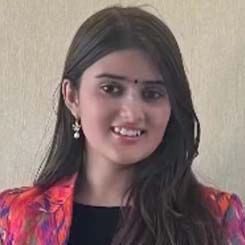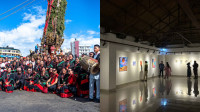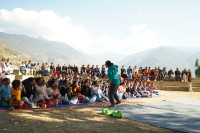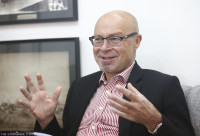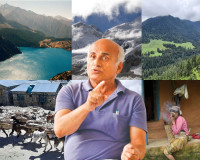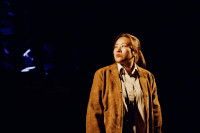Culture & Lifestyle
Nepal’s young voices, unmuted
Public speaking clubs and debate platforms are offering more than podiums—they’re giving youths purpose, power and a place.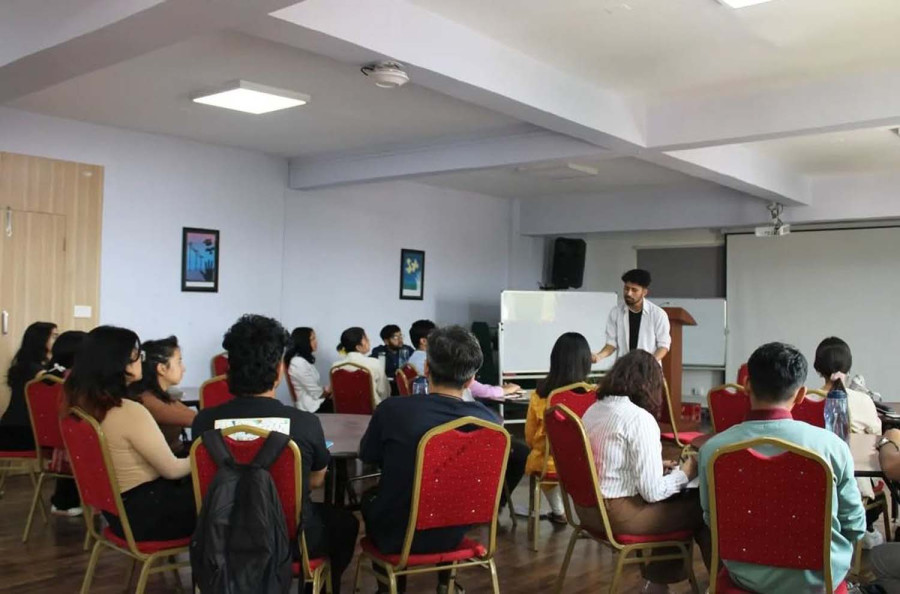
Reeva Khanal
What if Nepal’s new generation of public speakers sits quietly in a classroom, unsure whether they can raise their hand? For many youths, the fear of public speaking isn’t merely stage fright—it’s about never having been given a stage at all. While an increasing number of youths in Kathmandu are finding platforms to express themselves, connect with peers, and grow into confident communicators, countless others across the country are still waiting for such opportunities.
Laxmi Rai, a member of the Presidential Toastmasters Club, reflects on her journey of overcoming self-doubt, “In group discussions, I often couldn’t say what I wanted,” she says. “But seeing confident speakers made me realise I was holding myself back. Toastmasters helped me step out of my comfort zone.” Her breakthrough came during a class presentation when she was nervous to turn around and speak to the class directly. That moment of hesitation triggered a realisation—fear was limiting her potential. “I hope to encourage shy or scared youth to believe in themselves,” Rai adds, underscoring the power of such platforms in empowering young voices.
Pragya Thapa, secretary for the 35th tenure of Smart Club, faced a similar challenge. “Covid pandemic locked me in for almost two years,” says Thapa. “Most of my interactions were through screens. After the pandemic, I struggled to speak without feeling self-conscious.”
In her first year of university, she avoided conversations. “But as I thought about my career, I realised how vital communication is. Toastmasters felt too formal, so I sought a friendlier space—and found Smart Club,” she says.
Her early speeches were shaky. “But I was chasing progress. We’re raised to strive for the best, and that mindset pushed me to grow in every way.”
What began as a professional goal—to enhance her CV—soon became more meaningful. Smart Club sessions include pre-decided, self-decided, and impromptu speeches.
For her, platforms like Smart Club are acts of resistance. “Newcomers often join simply to grow. Founded in 2003 on the idea that ‘if you spoke English, you were smart’, the club has evolved into something far more inclusive, even hosting Nepali sessions. It’s no longer just about speaking. It’s about belonging,” she says.
This inclusive approach has helped many, including Pratisha Joshi, now a research and communication professional. She shares that Smart Club didn’t just teach her how to speak—it taught her how to listen. A moment that stood out for her was a debate on digital surveillance, where one participant expressed how they had never considered the gender biases embedded in algorithms. It’s these kinds of thoughtful dialogues that Joshi believes can transform the way young people view and practice communication.
Joshi also touches on the educational system in Nepal, where expression is often stifled by strict adherence to obedience. “In schools, expression is tied to obedience. In the media, noise outweighs nuance. Platforms like ours let youth practise democratic dialogue,” she says. This sentiment echoes the experiences of Laxmi Chaudhary, who discovered Confident Steps Nepal through social media. “It was a safe, non-judgmental space. Communication isn’t an extra skill—it’s a life skill,” she emphasises.
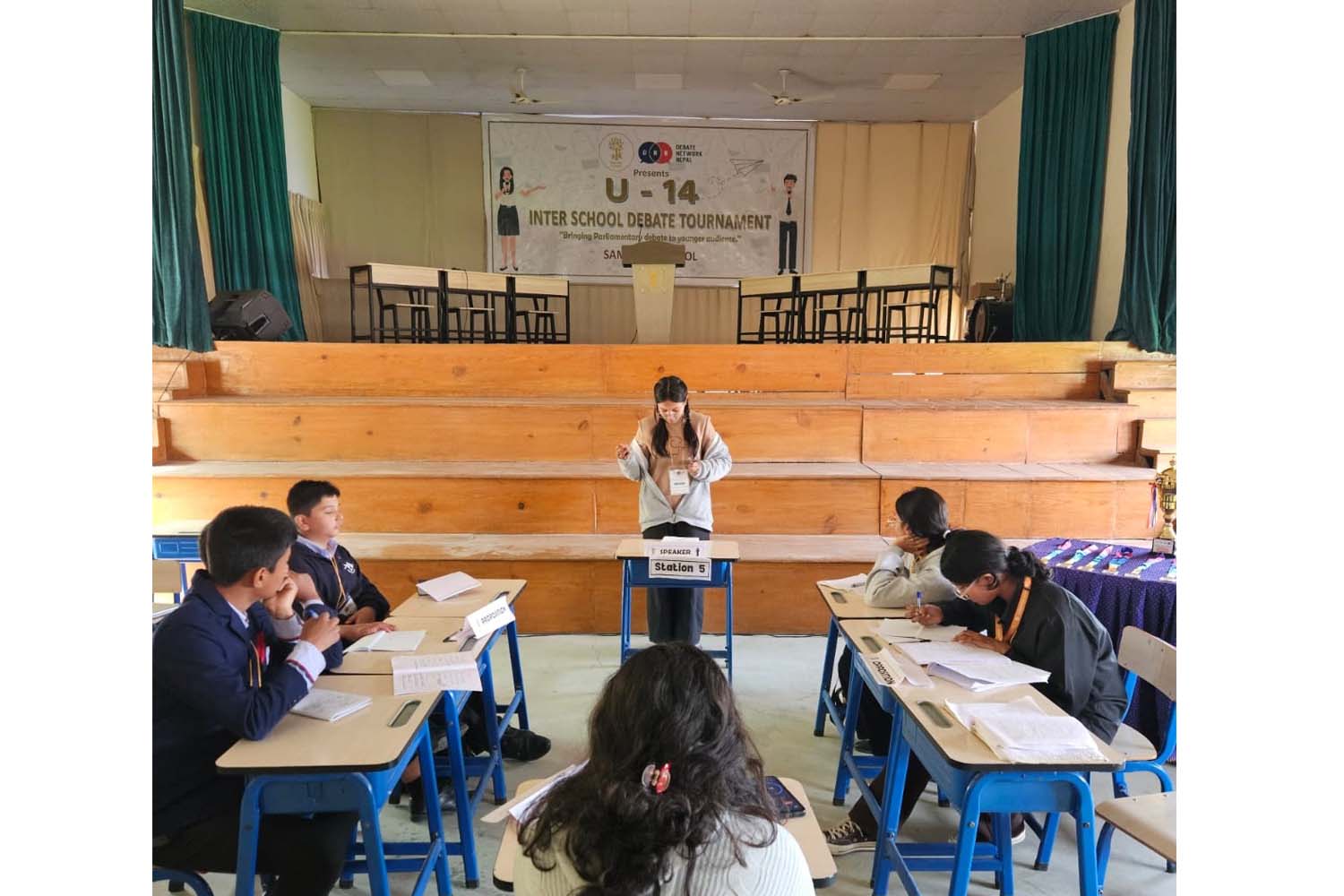
The impact of such platforms extends beyond local communities. Confident Steps is now reaching a global audience through online workshops that break down barriers and give young people the tools to speak confidently.
Asmita Mainali, the founder of Confident Steps Nepal, believes in the power of accessible platforms to build not just communication skills, but confidence and readiness for life. “We host weekly virtual sessions open to all. The membership fee costs less than a gym fee,” she says. Her colleague Prasamsha Aryal who is serving as a program manager at Confident Steps Nepal adds that the organisation offers a holistic approach to development, from financial literacy to mental health. “It’s not about perfection. It’s about participation,” Aryal notes, highlighting the importance of engagement over flawless delivery.
For some, public speaking has been a transformative journey, both personally and professionally. Sanskriti Acharya, who joined the Presidential Toastmasters Club at 19, recalls a time when she couldn’t even look people in the eye due to fear. Years of bullying had left her with little self-confidence, but through persistence, she found a new sense of empowerment.
“I chose to keep going,” Acharya says. That determination led her to national and international public speaking competitions, where she not only overcame her fears but also gained recognition for her achievements.
Shuvam Chhetri Shah, a member and a trainer of Debate Network Nepal (DNN), shares a similar journey of growth through public speaking. Involved with DNN since 2017, he explains how the platform has shaped the way he approaches communication. “DNN shaped how I carry myself. It taught me to be critical, structured, and open to perspectives,” he says. For him, public speaking isn’t about competing with others; it’s about engaging in meaningful conversations. “Discourse over dominance. Dialogue over deference,” he adds.
Shah’s experience also highlights the need for more inclusivity within public speaking spaces. After participating in a session with the visually impaired at Sarwodaya Foundation, he was reminded of the importance of accessible communication for all. “It was a learning moment on both sides. It reminded me: communication must be accessible for all,” he says. However, Shah notes that many platforms still remain urban-centric, and there’s a need for a cultural shift in how public speaking is perceived outside major cities. “Outside Kathmandu, debate is often mistaken for arrogance. We need a cultural shift,” he stresses.
Aashima Chalise, who began her DNN journey as an adjudicator, is now the first female board chair of the organisation. “It taught me that clarity matters more than delivery,” she says. Chalise’s leadership has been instrumental in promoting diversity within DNN. “A safer space for women, an inclusive VidhuShe 2025, and proof that leadership has no gender,” she called for in her acceptance speech. Since then, more young women have stepped up to take leadership roles. “The parliamentary format we use—Claim, Reasoning, Evidence, Acknowledgement—has taught young people to speak with purpose,” she explains. For Chalise, it’s not about sounding smart, but about being thoughtful in one’s approach to communication.
Reflecting on her journey, Chalise recalls a panel where a male speaker dismissed a female moderator’s focus on women’s issues. “That moment showed how poor communication can reinforce bias. Platforms like DNN can help shift that,” she says, emphasising the need for platforms that foster respect and understanding across all genders.
These voices remind us that communication skills aren’t just about polished delivery or applause—it’s about access and affirmation. Whether in a Kathmandu club room or a rural classroom, the right to speak and be heard should never be a privilege. The step must be broader inclusion—bridging divides of geography, class, and language. To democratise expression, Nepal must invest in platforms and a culture that values dialogue over deference, curiosity over conformity. Because somewhere, in a quiet corner of the country, the next great speaker is waiting—not for the fear to disappear, but for someone to give them the mic.




 8.79°C Kathmandu
8.79°C Kathmandu